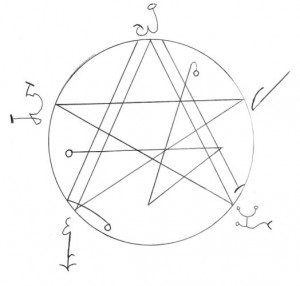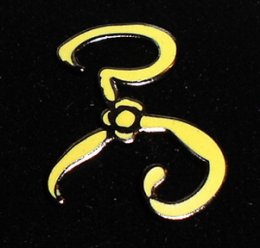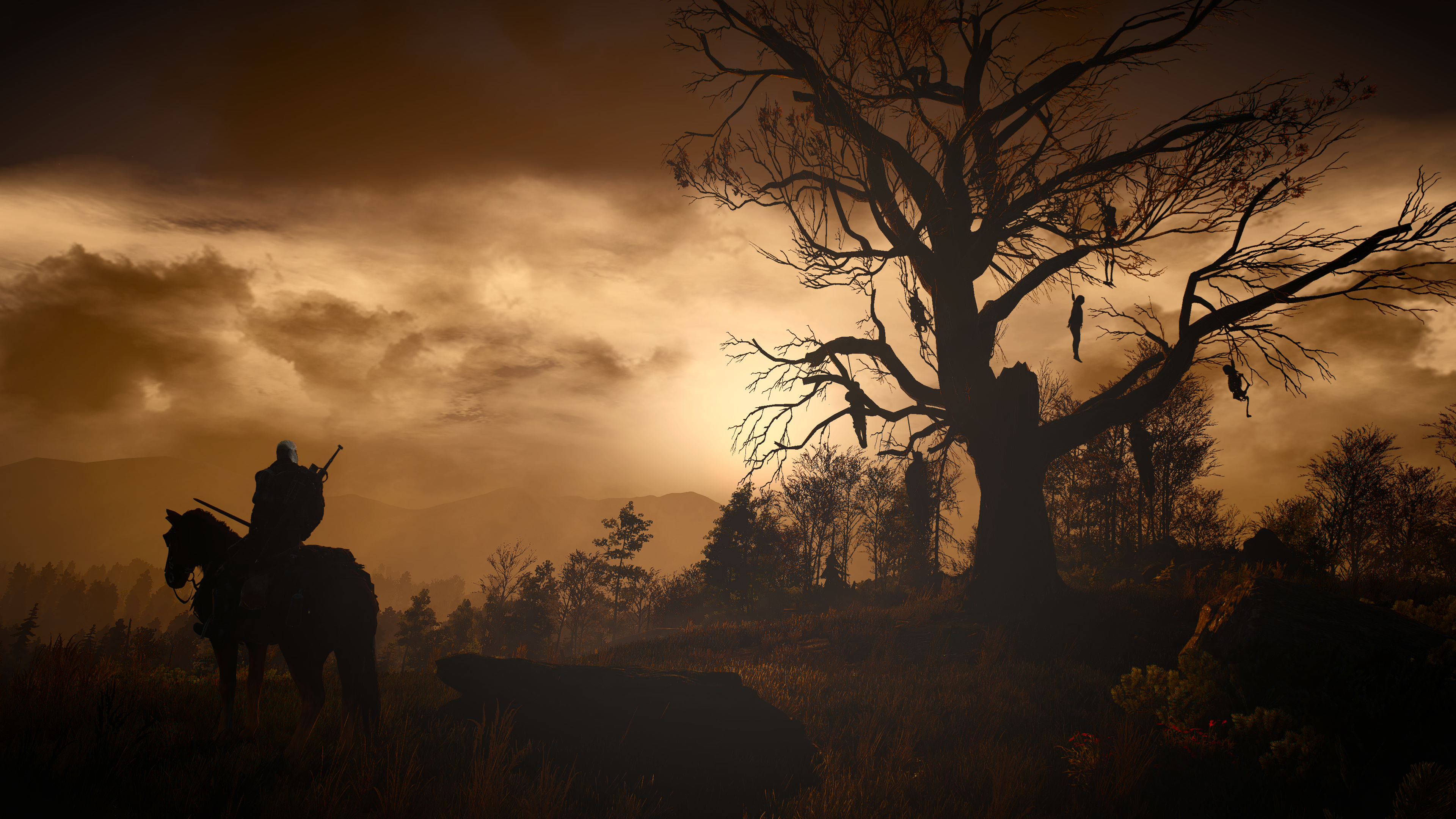Synopsis
Rupert Merriweather, a notable resident of Arkham, while on his deathbed, confesses a dark secret to Dr. Carly Nannetti; while at college, he and several of his fellow students, dabbled in the occult and tried summoning a spirit. Eventually they succeeded, but not without paying a price; one dead and one permanently institutionalised. They bound the summoned spirit to a farmhouse in the little town of Ross’ Corners, close to Arkham, but when the last of their group dies, the spirit will be freed from the binding. Mr. Merriweather begs Dr. Nannetti to do something, and she reluctantly agrees.
Dr. Nannetti manage to convince Sir Kevin O’Reilly, Mr. Darren Cobwell and Mr. Jake Armitage to take up the charge of banishing the spirit. After doing research into the brotherhood Mr. Merriweather belonged to and studying the material he used in the summoning ritual, they realise that this case might have close ties to the previous case they worked on, the haunted house on French Hill Street and the Chapel of Contemplation on Brown Street.
Shortly after, Mr. Merriweather passes away.
While investigating the abandoned farmhouse in Ross’ Corners, they find more evidence of the occult goings-on of the dark brotherhood and eventually are witness to a malicious evil residing in the attic of the small house. When Mr. Armitage goes to check out the attic, he is promptly decapitated by a vicious attack.
A man introducing himself as Jonathan Arlington and offers to help, claiming to have been an associate of Mr. Armitage. Not in a position to turn down the offer of help, the investigators accept. In one horror-filled night they manage to face the spirit and some of its undead minions and banish the spirit from this realm. As with the dark brotherhood, the ritual came with a price; an investigator decapitated, a contact at the library murdered for offering his help and the mental decline of another investigator.
Mr. Rupert Merriweather
Dr. Nannetti, while tending Mr. Rupert Merriweather, a patient in the last stages of terminal cancer, took a deathbed confession; Mr. Merriweather had, in his younger years, along with several college friends, bought a farmhouse in Ross’ Corners, a small village close to Arkham. They had performed pagan rituals and managed to summon a malevolent spirit, which they had magically bound to the farmhouse, before abandoning it, never to return. Alas, Mr. Merriweather was about to die, the last remaining member of the brotherhood of young men involved in the binding ritual. With his passing, the spirit would be free to roam beyond the farmhouse, leaving Mr. Merriweather with a sincere feeling of dread about the consequences of his passing.
He hoped Dr. Nannetti would believe him and would take it upon herself to do something about the spirit in the farmhouse. He gave her a metal box, an envelope, a journal bound in leather and a small, gold, sacrophagus-shaped box. The inside of the box was adorned with hieroglyphic carving but was otherwise empty. The envelope held the deed to the farmhouse, together with a key to the front door, and the journal was a collection of logs kept by Mr. Merriweather, contining all the details of the arcane experiments and rituals the brotherhood performed.
Dr. Nannetti brings the information to the attention of Sir O’Reilly, Mr. Cobwell and Mr. Armitage, the latter of whom takes the journal to study it more closely, while the group agrees to go to Ross’ Corners the following morning to investigate the farmhouse.
The Journal of the Dark Brotherhood
The journal describes how six, young men, all in college, lead by Marion Allen, formed a group they called the Dark Brotherhood in order to escape the mundane existence of 1881. The brotherhood held their first meeting in the spring of 1881, in which Mr. Merriweather was appointed as the recording secretary while Mr. Allen was voted their nominal leader. Their ideas at the time were playful, as were their attempts to contact spirits. Their Ouija-board sessions were never successful and they did it all for fun.
In June of 1881 the six of them bought a farmhouse out in Ross’ Corners. It seemed the young men had found something that had renewed and reinvigorated their belief that they were on to something. The place was cleaned and furnished and it would serve as their headquarters. Mr. Allen put up warding signs along the doors and windows of the house to keep evil spirits out, which the rest of the group thought was silly. The last entry of the journal tells of Mr. Allen making a translation of a book called De Vermiis Mysteriis, which translates to “The Mystery of the Worm.” It was likey that this lead to the renewed the young men’s dedication and is also a probable source of Mr. Allen’s knowledge of warding signs.
In February of 1882, Mr. Allen bought an Egyptian artifact, a box with an amber stone inside it, which in turn held an unknown insect perfectly preserved within. This box was acquired roughly around the same time as Enoch Bowen’s heart failure. It’s possible Mr. Allen bought the artifact out of Mr. Bowen’s private collection.
Later, Mr. Allen found a reference to the artifact in an ordinary reference volume at the Miskatonic University library. He stated that De Vermiis Mysteriis held an explanation about the box and the amber-encased insect. It said the insect was a friendly spirit and guide to the spirit world. A date was set and on a Saturday night in March of 1882, the ritual was performed.
We begin the ceremony as Marion instructed, according to that described in his book, De Vermiis Mysteriis. A fire is set in the fireplace and a pentagram chalked on the floor, marked with appropriate symbols and illuminated by two black tapers placed near the center flanking the piece of amber with its entrapped spirit. The others sit in a circle while I, the designated ‘watcher’ who guards for malevolent spirits, sit in the far corner of the room.
Marion throws a handful of powder in the fire, producing an evil-smelling smoke and dampening the flames which now burn a sputtering green and brown. Those seated begin the Latin chant Marion Allen has transcribed from his book.
After nearly two hours I see a trail of smoke circling up from the piece of amber. Its surface seems to be bubbling, melting. Could this be it? Have we finally achieved success? I can see a form –
It is the following day. We have finished with our plans and have sworn a pact to never speak of what happened last night. We have satisfactorily explained the death of Robert, and in some manner the madness of Harold. The sheriff accepts the explanation of a carriage accident – we planned it well. Robert’s neck was broken in the fall, we told him. Harold struck his head on a rock when the horse’s leg broke and the carriage rolled. Would it be that it was only that. For the rest of us, we will be forever changed by what we experienced last night.
The thing formed in the center of the pentagram, shapeless, nearly invisible. Its terrible voice should have given us a clue but we were foolish. It spoke, then Marion cast that damned powder on the spirit, the Dust of Ibn-Ghasi he calls it, and that’s when we could see it.
Words cannot describe the faceless thing with a thousand maws. It roiled and bubbled, never fully revealing itself. So terrifying was its aspect that I sat as though frozen to the floor, the pen falling from my nerveless fingers. Cecil and Marion seemed as lifeless as I, while a short, sharp cry issued from Crawford’s mouth. Robert, however, rose to his feet and before anyone could stop him, stepped forward as though to embrace our horrible guest. With its arms, or those appendages that seemed most like arms, it took hold of poor Robert and twisted his head around as though it was a doll’s head. The lifeless corpse was then thrown back in Harold’s lap and that’s when he began that damnable shrieking – the shrieking that hadn’t stopped even after we handed him over to the Sheriff’s men.
We still had a chance, apparently. Marion now believes that if we had kept our wits, we could have reversed the chant and eventually forced back the creature to wherever it came from. But Crawford panicked and, mistakenly believing that it would dispel the creature, reached forward and destroyed part of the pentagram, breaking its effectiveness. Released from that binding symbol, the thing – with a screech that could only have been unholy satisfaction – fled the house, disappearing out the window as a roaring, screaming wind of boiling colors.
Marion believes hat the thing could still be destroyed, or at least, dispelled, but none of us who remain have the stomach for such an undertaking. It is believed that the spell we cast inextricably binds the thing to the house and it is true that when we went back a few days later to retrieve our things, we heard it bumping around in the attic over our heads. The warding signs so cheerfully carved by Marion Allen during better times – times that seem so long ago – apparently are effective and bar the thing entry except into the attic of the house.
The next entry in the journal was a small list of names and dates. It read:
Robert Menkin – March 18, 1882
Harold Copley – August 18, 1882
Marion Allen – August 18, 1883
Crawford Harris – January 19, 1915
Cecil Jones – March 19, 1922
Rupert Merriweather – …
Enclosed with the journal was a small newspaper clipping, which read:
A Murder at the Docks
Boston – The body of Mr. Marion Allen, late of Arkham, MA, was discovered early this morning near the main docks. A victim of foul play, the man was identified by local witnesses who said that Mr. Allen had been seen in the locale the evening before. Although robbery was the apparent motive, police report that the victim’s tongue had been cut out. Marion Allen had reportedly gone to the police earlier this week claiming that he was being followed and that he feared for his life. He said his shadowy pursuers were after an Egyptian artifact which he no longer possessed.
The last entry of the journal read:
I gravely fear that which my colleagues and I have loosed upon this countryside. Nothing of consequence has yet taken place but with my death the bonds will be broken and the thing then freed to come and go as it pleases. Lives and souls not yet taken already lie heavily on my conscience. The method of delivering the thing out of this world is still in that accursed house, the translation made by Marion Allen from the horrid De Vermiis Mysteriis. I am not strong enough to take on the task, but I know of those who perhaps are. Should they fail me, may God have mercy on my soul.
Ross’ Corners
Ruper Merriweather passed away soon afterwards and was buried at Aylesbury Graveyard. The investigators decided to head out to Ross’ Corners and investigate the farmhouse. Sir O’Reilly had discovered that a copy of De Vermiis Mysteriis resided in the Miskatonic University library, under lock and key due to the sensitive nature of the content. Also, he’d found a translation of the hieroglyphics:
Seeker of Wisdom, Servant (Son) of Ygr (Yoag) Setheth, Deliverer of the people (slaves) of the water, Bearer of the spirits of Nar-Loth-Hotep, Child of Toth.
After the investigators made their way through the village, encountering several unhelpful villagers, the farmhouse was found on Boomroad. The house was standing on a small hillock, a normal, two-story affair, with an 18 by 30 footprint and a steeped roof showing sincere signs of disrepair. A front and backdoor allowed access to the house and the investigators found the backdoor ajar. The doors and the shuttered windows had a curious sign carved into the wood of the frames, clearly the warding signs applied by Mr. Allen that Mr. Merriweather described in his journal.
While walking through the farmhouse, Mr. Armitage got attacked by a drifter who had temporarily taken shelter at the farmhouse. Before any of the investigators could respond, the man got away. Signs in the farmhouse showed him to have been squatting the place for some time.
After searching the farmhouse more thoroughly, Dr. Nannetti found a sheef of papers, a metal canister and a small wooden box. Both the container and the box held strange powders in them. Presumably, one of them was the Dust of Ibn-Ghasi Mr. Merriweather spoke of in his journal. The sheaf contained 13 pages, the first six of which were in Latin. The investigators concluded that these were the latin chants that Mr. Allen had copied from De Vermiis Mysteriis. Three more pages were dedicated to a description of the source of the chant. There was a page with a large drawing of a pentagram, and the last three pages were a text about De Vermiis Mysteriis, compiled by Mr. Allen.
Research
When returning to Arkham, the investigators split their time investigating different aspects of their findings. The university librarian, a man by the name of John Henry, was confronted by the tale of the dark brotherhood and how these students got access to De Vermiis Mysteriis in the university library all those decades ago. He clamped up, but the investigators reckoned he was a good man and wouldn’t let a summoned spirit wreak havoc on the countryside around Ross’ Corners without at least lending aid to the investigators.
The papers with the description of the Latin text, it told of Ludwig Prin, a Flemish warlock who was burned at the stake while the church tried to supress his book, De Vermiis Mysteriis, which was said to contain descriptions of the Arab world and its rituals containing the supernatural. Even though the suppression by the church was near complete, a few copies were printed in Cologne, Germany. Although the book was written in the 16th century, copies of it exist even today. Miskatonic University has one, and obviously Marion Allen got his hands on one, although Mr. Henry assured the investigators that it was not the Miskatonic copy.
The last pages of the sheef describe the ritual. It also says the compound of the Dust of Ibn-Ghasi is a combination of sulfur, copper-oxide, graphite and pyrite. It said the powder should be burned in a fire during the chanting, which should start at midnight and go undisturbed for at least two hours. Also, two black candles should be burning on either side of the pentagram drawn on one of the pages. To banish the spirit, the Latin text should be reversed, word for word.
Another thing that became clear to the investigators is that the spirit doesn’t necessarily have to present during the banishment, but that the spirit will sometimes be reluctantly drawn towards the ritual.
A reference to the golden box was found in a book called The Treasures of the Pharaohs. There was a drawing and a description of a small sarcophagus which had it’s origins in the old Egyptian empire of the 7th and 8th dynasty. The box used to be the property of the County fo Leeds, England, acquired in 1864 and stolen in a burglary in 1867. It was said that kings and pharaohs called up the spirit inside the amberstone for guidance.
Another connection was made to Enoch Bowen at that revelation, as he found the tomb to the nameless pharaoh, who also reigned during the 7th or 8th dynasty and was accused of demon worship.
Mr. Henry approached the investigators and offered his help. He was willing to offer information, but wasn’t willing to provide any hands-on help. He filled in quite a few gaps and confirmed some of the theories the investigators had come up with. He also said he would prepare in case something would go wrong and the investigators failed to banish the spirit.
Death of Mr. Armitage and the introduction of Mr. Arlington
When Mr. Henry gave the investigators a more concise and compiled collection of notes and instructions for the banishment ritual, the investigators returned to the farmhouse. This time something was rummaging around in the attic. A high pitched shrieking and a strange bumping lead the investigator to approach trapdoor towards the attic, which turned out to also be warded with the curious signs applied by Mr. Allen. When Mr. Armitage took the initiative to climb the stairs and open the trapdoor to shine a light inside, a thundering trampling was heard shooting towards the trapdoor and Mr. Armitage was instantly decapitated, his lifeless, bloody corpse plummeting to the ground.
Panicked, the investigators fled the farmhouse. When the darkness of the hills around Ross’ Corners crept up to the investigators and they headed back to the safety of the lit farmhouse. When they got back to the farmhouse, they found a young man by the name of Jonathan Arlington waiting for them. He explained he was an associate of Mr. Armitage, on his way to lend his assistance in the banishment of the spirit. It quickly became evident that, something which some of the investigators had already suspected, Mr. Armitage was associated with several people who investigated similar occurrences all throughout the country. A group that Mr. Arlington was also a member of. Young and intelligent, it took no time whatsoever for Mr. Arlington to make himself useful. The investigators were too shocked by the death of Mr. Armitage and the task ahead to ask too many questions.
The Banishment
While the bumping, scraping and unearthly growling continued in the attic, the ritual was started and required all of the investigators’ concentration. When the banging on the doors started, young Mr. Arlington assured the investigators not to pay it any mind, that it was just the spirit’s attempt to break the concentration of those sitting in one the ritual. Whatever it was out there, couldn’t come inside the house due to Mr. Allen’s application of the curious warding signs on the windows, doors and the trapdoor to the attic.
Smoke started to arise from the center of the summoning circle that the investigators drew on the floor of the farmhouse. Something invisible seemed to be hiding within the smoke and one of the investigator threw the Dust of Ibn-Ghasi onto the invisible spirit. Later, each of the investigators would recall seeing something different when the spirit was made visible. Mr. Arlington would assure the investigators to disbelieve what they were seeing and continue the ritual. Sir O’Reilly couldn’t resist and walked into the wispy smoke. He shrieked and temporarily lost consciousness.
Meanwhile the banging on the door had increased and Mr. Cobwell and Mr. Arlington moved outside, only to be confronted by the walking corpses of the hobo which had attacked Mr. Armitage when they first came to the farmhouse, and the body of a farm girl, whom they had heard had disappeared. Some well-placed shots with pistols took care of the walking dead.
The rumbling continued and the entire farmhouse shook while the smoke started to become acidic and corrosive. When the smoke finally dissipated, the farmhouse was still and several holes had been eaten in the floorboards of the house, perhaps where the spirit had tried to find weaknesses in the ward’s defenses.
The spirit was gone. The gold-coloured sarcophagus box was once again filled with a dark amberstone. Faint red striae ran along the edges of the stone and, holding it up to the light, you can see the faint outline of an insect inside of it.
Epilogue
Darren Cobwell, private investigator, had a temporary nervous breakdown after the conclusion of this investigation, left Arkham and was never seen again.
Mr. Henry is murdered, stabbed to death in the library. A large, yellow sign is found painted on the wall near his body. Nothing was missing and no other clues were found. The case is still open, though the police have made it clear they don’t expect any leads.
O’Reilly marks his doors and windows with the same signs that Mr. Allen used to protect the farmhouse. He also secures the sheaf of papers, the metal cannister, the box with the Dust of Ibn-Ghasi, and the golden sarcophagus in the safety deposit box in First National Bank in Arkham.



